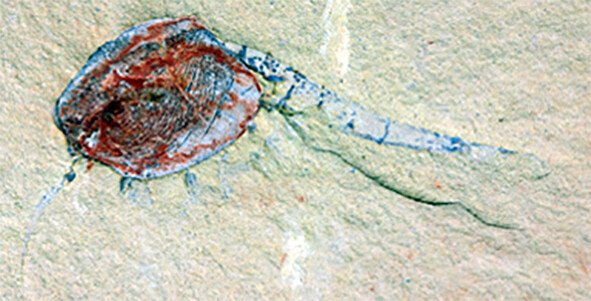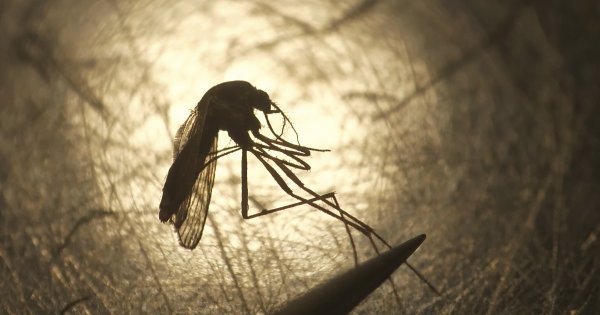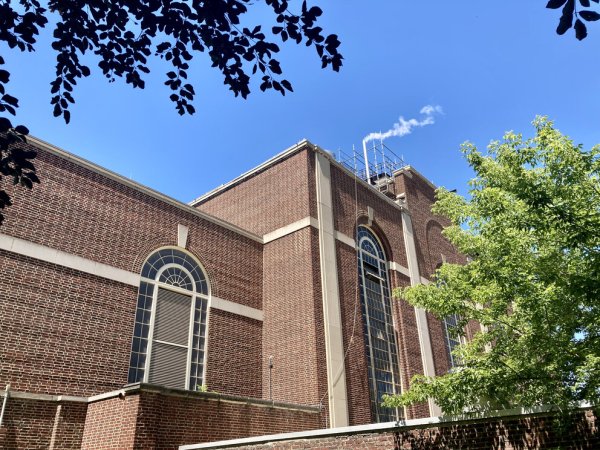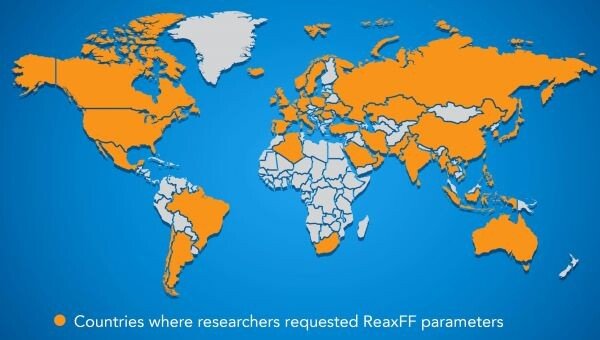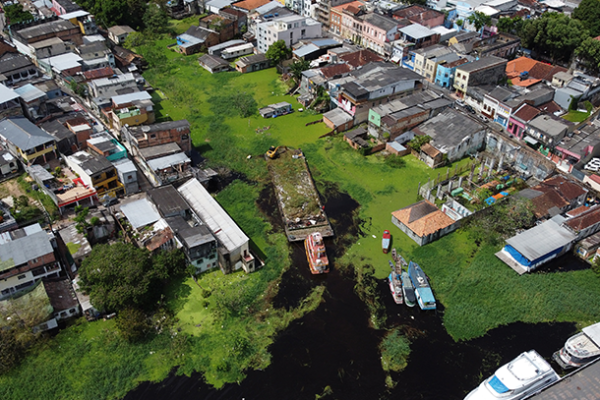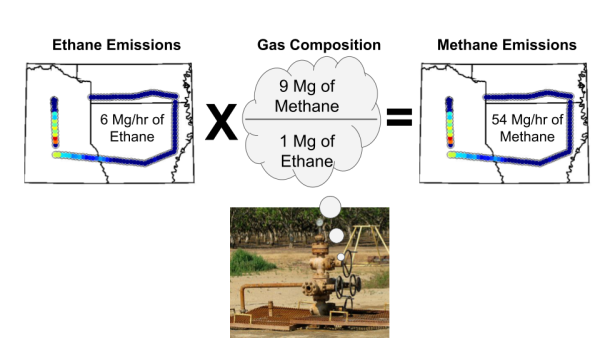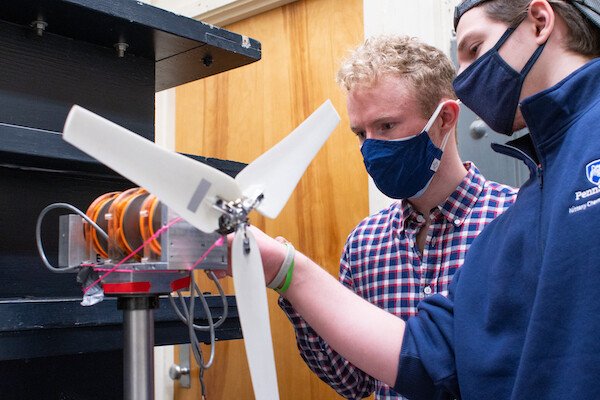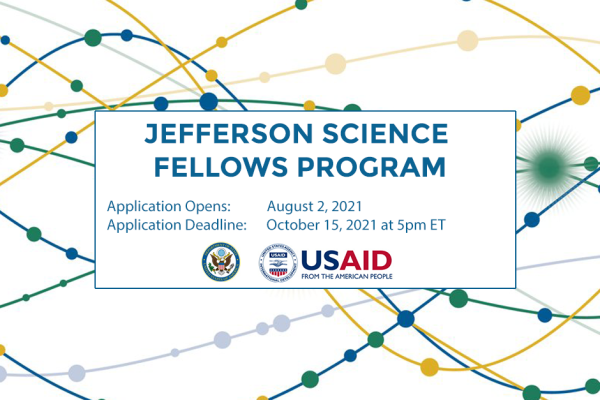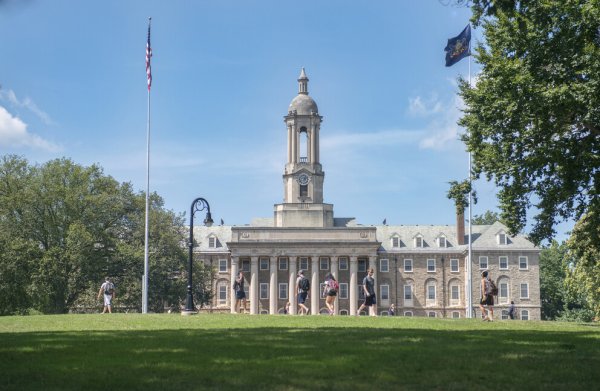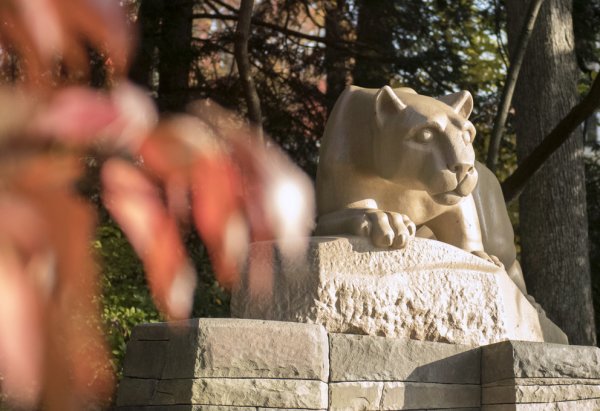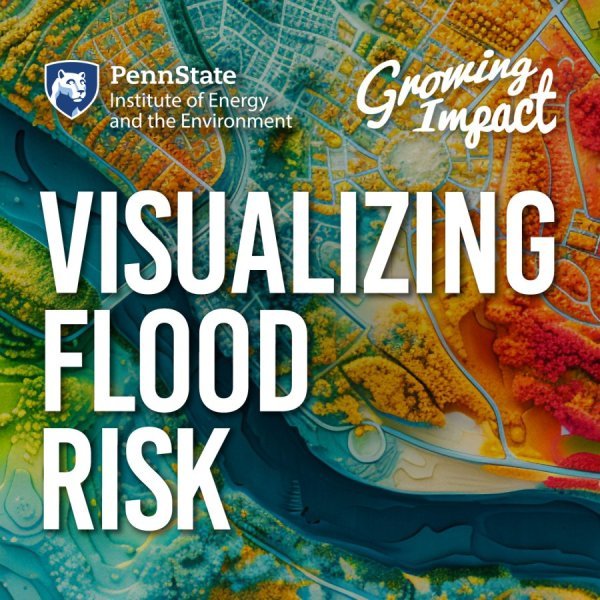Paleonursery offers rare, detailed glimpse at life 518 million years ago
| news.psu.edu
A newly discovered fossil deposit near Kunming, China, may hold the keys to understanding how organisms that lived in the oceans 500 million years ago laid the foundations for life on land and at sea today.
Column: COVID isn't spread by mosquitoes. But the next pandemic might be
| latimes.com
As an aggressive mosquito spreads in California, scientists say we got very lucky that the insects couldn't transmit COVID-19 to people.
West Campus Steam Plant to begin final testing of new turbine
| news.psu.edu
The new 41-foot long turbine, with the ability to recover and reuse its own generated heat, will help reduce the University’s annual greenhouse gas emissions by an estimated 16,000 tons per year, save the University approximately 10% on energy costs, and provide roughly 20% of University Park’s annual electrical demand and 30% of steam requirements.
Researchers worldwide find great value in ReaxFF reactive force field
| news.psu.edu
More than 1,600 researchers in six of the world’s seven continents have requested parameters for a ReaxFF reactive force field developed by a Penn State researcher and used as a valuable research tool in fields as varied as biomaterials, polymers, batteries and 3D printing.
Penn State-led team to bolster communities impacted by climate change
| news.psu.edu
An international, Penn State-led consortium aims to improve infrastructure resiliency, along with sustainability and public health, in coastal areas most impacted by climate change. The $1.1 million project, supported through the Belmont Forum, focuses on low-income communities in select parts of Brazil, East Africa and North America.
Ethane proxies for methane in oil and gas emissions
| news.psu.edu
Measuring ethane in the atmosphere shows that the amounts of methane going into the atmosphere from oil and gas wells and contributing to greenhouse warming is higher than suggested by the U.S. Environmental Protection Agency, according to an international team of scientists who spent three years flying over three areas of the U.S. during all four seasons.
Penn State takes first in Collegiate Wind Competition
| news.psu.edu
The Penn State Wind Energy Club won big at the United States Department of Energy Collegiate Wind Competition, taking home first overall in the competition and first in the project development contest.
Why are the new climate normals abnormal?
| by Emily Pakhtigian
Each decade the National Oceanic and Atmospheric Administration (NOAA) releases a new set of U.S. Climate Normals, providing thirty-year temperature and precipitation averages that contain insight about both current weather and patterns in the near future. In early May, NOAA released the Climate Normals for 1991-2020, revealing the warmest recorded period to date.
Jefferson Science Fellows Program
| sites.nationalacademies.org
Tenured academic scientists and engineers from U.S. institutions of higher learning are eligible for selection to be Jefferson Science Fellows. Each Fellow spends one year at the U.S. Department of State or the U.S. Agency for International Development (USAID) for an onsite assignment in Washington, DC.
Scholars sought to participate in One Health program
| news.psu.edu
Undergraduate and graduate students are encouraged to apply to the Penn State One Health Scholars Program, a cross-disciplinary applied-training program in which a cohort of scholars will work closely with faculty whose research, teaching and practice involve One Health.
Interdisciplinary projects awarded seed grants from IEE
| news.psu.edu
The Institutes of Energy and the Environment (IEE) has awarded seed grants to 22 groups of interdisciplinary researchers for the 2020-21 award cycle. This year, seed grants were awarded to proposals focusing on at least one of IEE’s five strategic research themes — Climate and Ecosystem Change, Health and the Environment, Integrated Energy Systems, Urban Systems, and Water and Biogeochemical Cycles.
Searle Scholars Program
| psu.wd1.myworkdayjobs.com
The Searle Scholars Program gives grants to support independent research in medicine, chemistry, and the biological sciences for exceptional early-career scientists who have recently begun their appointment at the assistant professor level, and whose appointment is their first tenure-track position. The Searle Scholars Program Scientific Advisory Board is primarily interested in the potential of applicants to make innovative and high-impact contributions to research over an extended period of time. Internal Submission Deadline: Wednesday, July 28, 2021, at 4:00 pm

